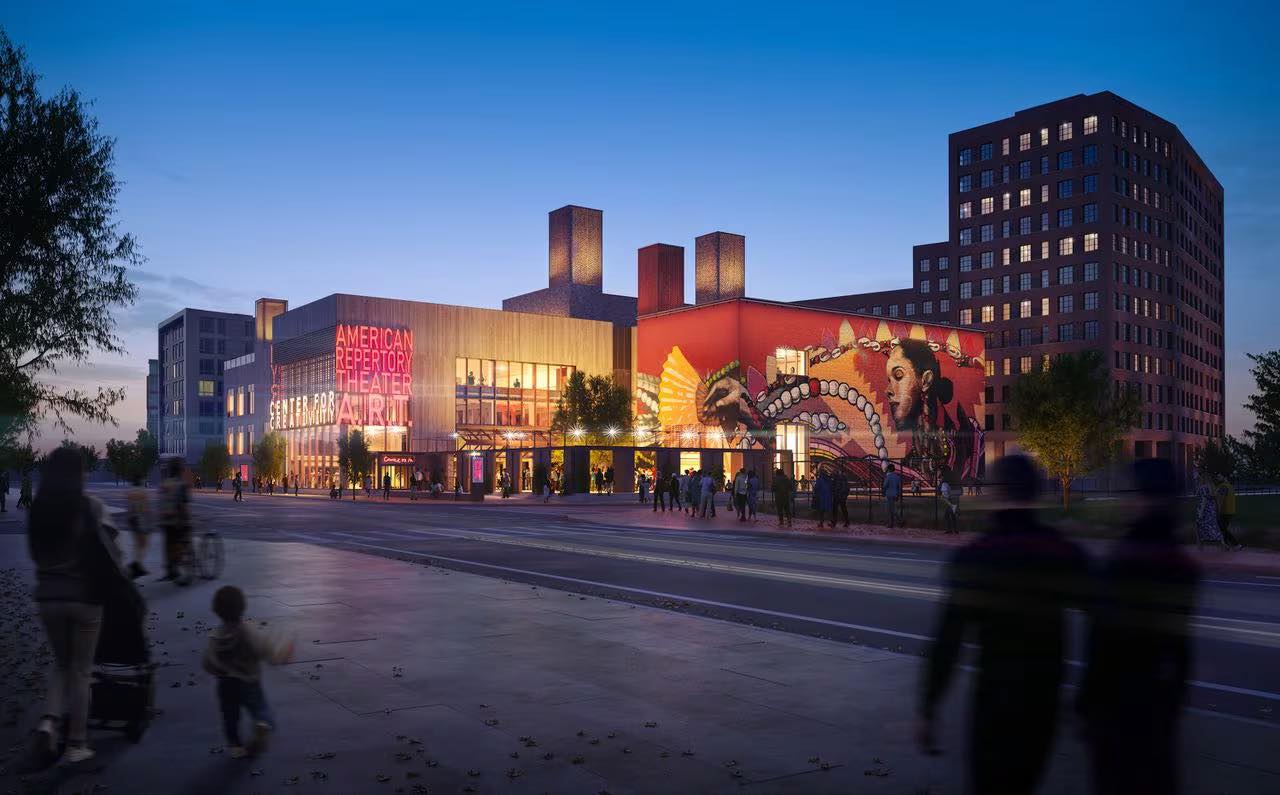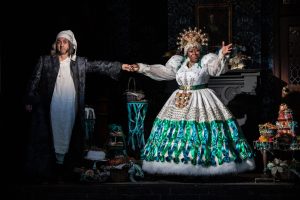
American Repertory Theater coming to Allston after BPDA approval
The American Repertory Theater has hosted world renowned performers, such as James Earl Jones and Audrey McDonald, over the decades in Cambridge’s Harvard Square, but the venue will be on the move within the next few years.
The Boston Planning and Development Agency last week approved to relocate the theater to Harvard University’s Allston campus as part of a $370 million project that also includes a 13-story residential building for graduate students, faculty and staff.
“But the facility was not built to support a boundary-breaking regional theater,” A.R.T. Executive Director Kelvin Dinkins Jr. said of the current facility which has operated in Harvard Square since its founding in 1980. “Over the years, our mission has remained constant but our vision has expanded, and so has our work.”
The 70,000 square-foot center, slated to break ground at 175 North Harvard St., next year and open in late fall 2026, will include two performance venues, rehearsal studios, teaching spaces, a public lobby, and an outdoor performance yard designed to host ticketed and free programming.
“Our programming will be designed to engage the local, national and international creative ecosystems and to make meaningful contributions to them,” Delkins said. “This new building will become a fixture among the city’s cultural offerings as an international destination and a local hangout.”
The 13-story residential building will include 276 students with capacity to house roughly 500 Harvard affiliates in apartments ranging from studios to four-bedroom townhouses, according to project documents.
A.R.T and Harvard officials say the project will “contribute to an emerging hub of creativity and innovation in Allston and will add vibrancy to the corridor due to the significant scale of its residential component.”
It will be located around the corner from Harvard’s Science and Engineering Complex on Western Avenue and up the road from the university’s Enterprise Research Campus, under development, and Harvard Stadium.
Harvard received a $100 million gift in 2019 from alumni David and Stacy Goel that officials say “catalyzed the process of reimagining the University’s arts campus to include a new home for the A.R.T. that would enhance Harvard’s and Greater Boston’s arts communities.”
Several neighborhood residents on the Allston Task Force raised concerns that community benefits included in the project don’t fully encapsulate what they had asked for in past conversations with the university.
They asked for Harvard to renegotiate the benefits, some of which include a connection to nearby Smith Field and $300,000 to the Boston Parks and Recreation Department to improve the park as well as $173,376 for the Boston Transportation Department to create a new Bluebikes station.
“It seems as though (Harvard) will say something, they will agree that they will do something about it, but in the end, unfortunately, it’s never done once their projects are approved,” resident Edward Kotomori said.
The project was included in Harvard’s 10-year development plan for the Allston campus in 2013, said Mark Handley, the university’s director of government affairs and community relations.
Approval of the Institutional Master Plan served as a “key step in the realization of Harvard’s long-visualized future in Allston and comes after a year of intensive community engagement,” officials said at the time.
Throughout the course of the past decade, community benefits, such as more than $5 million for public realm projects and $3 million to encourage home ownership, have been rolled out,” Handley said.
“We have successfully deployed those benefits continuously for nearly 10 years now,” he said. “Our approach to benefits on this project … I can tell you that every piece of feedback I’ve heard on the introduction of (the new center) has been one of excitement, it has been enthusiastic.”


